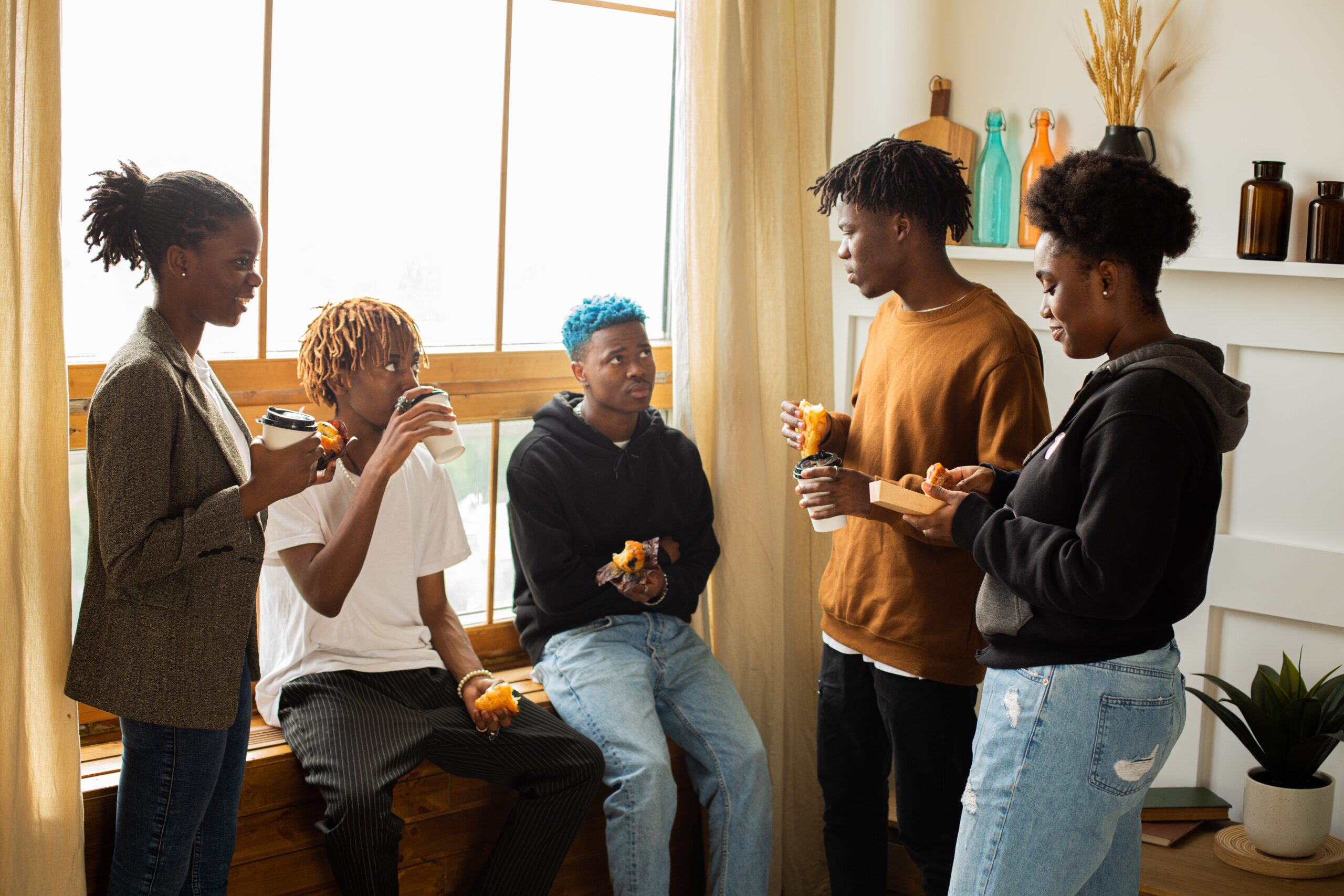How Exploring Your Black Identity Can Improve Your Mental Health

By Tiffany Eve Lawrence
When you start learning more about yourself and your identity, your self-awareness, confidence, and overall mental health can grow. But exploring your identity can be a complex — and lifelong — process, especially if you’re Black.
For many Black people, race and identity go hand in hand. A 2022survey by Pew Research showed that 76% of Black adults say their race is a “very” or “extremely” important part of their identity. But for years, the stories that have been told in mainstream media have been white-centered, with limited attention given to the experiences of Black people.
It can be hard to appreciate your cultural roots when you don’t see many stories you can relate to in the media, including the books you read in school or the television shows you watch. It can leave you struggling to understand who you are and whether you matter.
It’s helpful to seek out stories about common aspects of the Black experience, such as the different textures of curly hair, the beautiful variety of melanated skin, and the comfortable way of speaking known as African American Vernacular English (AAVE). Understanding your identity as a Black person gives you a tool to support your emotional well-being, and it can deepen your understanding of yourself, your community, and your place in the world.
Black History Includes Many Kinds of Stories
When Black people are referenced in pop culture or history classes, the go-to narrative is enslavement. We know slavery has a significant footprint in both American and Black history, but Black history doesn’t start with enslavement. Learning about the experiences of Black people before and after that ugly period can expand what you know of your racial identity.
You’re Capable of Doing All Kinds of Great Things
There’s a long history of Black people accomplishing amazing things that you may not know about.
Black professionals, artists, inventors, and creators are ingenious. The doorknob, alarm systems, the math that allowed humans to make it to the moon, and America’s first emergency medical service were all created by members of the Black community. Black excellence is woven deeply into the fabric of American life.
Stereotypes in the Media Don’t Represent You
Representation in the media heavily influences how Blackness is seen by society, and negative portrayals of Black people are still present — from televised racial violence to the discriminatory language used in the news when reporting on Black people. Seeing mostly negative images can be damaging to your confidence, self-image, and emotional health, but it doesn’t have to define your self-view. When you’re secure in your identity, you aren’t as easily persuaded or damaged by these kinds of portrayals.
Thankfully, there’s more inclusion of Black voices, including outspoken journalists like Joy-Ann Reid, creators like Amber Burns, and filmmakers like Ryan Coogler. With shows like “All American,” “Grown-ish,” and “Abbott Elementary,” Black representation in the media is increasing and diversifying.
You Can Be Truly Yourself
Black people have spent years adjusting their behavior, speech, and appearance in predominantly white spaces. For example, Black people had to follow social rules in the Jim Crow era that determined how they should act around white people.
That is not a legacy that has to continue.
Knowing the worth of your identity helps you understand that who you are doesn’t change based on who’s in the room and whether they see the beauty in your racial identity. You can have the confidence to celebrate your Blackness. Instead of trying to blend in, create friendships with people who genuinely celebrate your culture and differences.
How to Help a Friend Struggling With Their Racial Identity
You may have a friend dealing with low self-esteem or depression due to discrimination or comparing their identity with someone of a different race. As you get more in touch with your identity and the confidence it brings you, you can share it with other folks who are struggling.
Having someone who relates to their experiences can make them feel supported on their journey to being confident in who they are—and the community that comes from that connection will benefit you both. You can share the knowledge you have been cultivating yourself!
Once you learn more about your racial identity, you develop a foundation that allows you to stand on the creativity, accomplishments, and resilience of other Black people in history, making you more self-assured and appreciative of your Blackness.
Learn More About Black Mental Health
- Celebrating Your Black Identity Is Self-Care
- Ways to Begin Exploring Your Racial Identity
- How Exploring Your Black Identity Can Improve Your Mental Health
- How to Break Free of the ‘Strong Black Woman’ Stereotype
- Using Humor As a Healthy Coping Mechanism
- How to Support Social Justice Without Hurting Your Mental Health
- The Benefits of a Therapist Who Understands Your Cultural Background
- How to Find a Culturally Competent Therapist
- Getting Mental Health Support in Black Families





